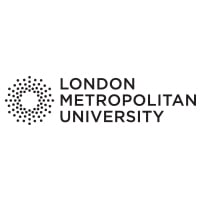Doctor of Philosophy
Position Details (PhD Program)
The Doctor of Philosophy PhD programme from London Metropolitan Universityis conducted purely by research. Each PhD is the unique development of a student’s individual research project, conducted under the guidance of at least two supervisory members of staff with expertise in the research area.
Within this Doctor of Philosophy programme from London Metropolitan University you can pursue a Doctor of Philosophy in any area of research within the University where suitable expertise is available to support the proposed project. Cross-disciplinary projects are welcome. The University provides a supportive framework for research and each student’s work is carefully overseen and progress monitored. It is also possible to study a PhD via distance learning at London Metropolitan University.
Completing a PhD means you’ll be making an original contribution to knowledge. It requires an excellent overview of existing research in your field, plus analytical skills to assess research claims. You’ll also need to be a self-motivator and be able to dedicate considerable time to completing a PhD.
Career opportunities:
Many people with an PhD become lecturers, teachers or researchers, but these are by no means the only destinations.
Depending on your discipline, you may go into industry (this is frequently the case for graduates in biological or computer science), the City (business and law graduates), public sector management and/or policy-making (social science and business graduates), international governmental organisations (social science and business graduates), the social professions or non-governmental organisations.
Many of their graduates are mid-career and use their degree for career enhancement in areas such as social services, education, counselling, health and social care, or diplomacy.
Our specialist research areas include:
- The Centre for Creative Arts, Cultures and Engagement;
- The Cyber Security Research Centre;
- The Cellular Molecular and Immunology Research Centre;
- The Centre for Primary Health and Social Care;
- The Child and Woman Abuse Studies Unit and The Global Diversities and Inequalities Research Centre, to name a few.



 London Metropolitan University
London Metropolitan University